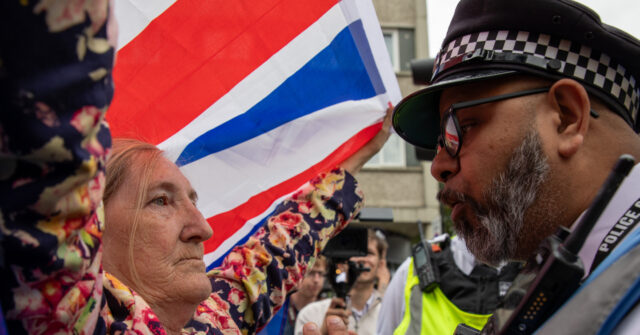Warwickshire Police has come under scrutiny for allegedly concealing the immigration status of two Afghan asylum seekers accused of raping a 12-year-old girl. These claims have been met with firm denial by the police force, which argues that national guidelines dictated their decision to withhold information. The suspects, Ahmad Mulakhil and Mohammad Kabir, were reportedly living in taxpayer-funded accommodations in Nuneaton.
The Mail on Sunday disclosed the identities of the suspects and suggested that local police were advised not to reveal their immigration status to prevent “inflaming community tensions.” This revelation has sparked accusations of a “cover-up,” particularly from George Finch, a council leader from the Reform UK party. He insists that transparency is crucial to avoid further public unrest.
In response to these accusations, Chief Constable Alex Franklin-Smith penned an open letter to Finch, denying any wrongdoing on the part of the police. He explained that the decision aligned with directives from the Labour Party government. The constable acknowledged Finch’s prior knowledge of the suspects’ status, emphasizing that the police were adhering to existing national guidance.
Despite the Mail on Sunday already publicizing the suspects’ immigration status, the police chief accused Finch of unnecessarily sharing the information. In reaction, Finch demanded a public apology and retraction from Warwickshire Police. He claimed that his attempts to address the matter were dismissed, further fueling his dissatisfaction.
The broader concern revolves around the government’s practice of withholding ethnicity and immigration details of criminal suspects, sparking debate on the implications of mass migration. This issue is amplified by the government’s policy of housing asylum seekers in hotels and rented homes, often leading to community tensions. A similar situation arose in Portsmouth, where local authorities allegedly concealed a migrant’s involvement in a rape case.
Home Secretary Yvette Cooper announced plans to introduce new guidance to increase transparency regarding the nationality and asylum status of suspects. This move is part of a broader strategy to regain public trust, as reported by The Times of London. The upcoming policy from the Home Office aims to address public concerns and improve transparency.
Philip Seccombe, Warwickshire’s police and crime commissioner, has called for the swift publication of these guidelines. He highlighted the difficulty faced by police in deciding what information to disclose in sensitive cases. The absence of clear national guidance on the matter complicates these decisions.
The government’s struggle to restore public confidence and address migration issues is evident. The reluctance to openly discuss these matters only exacerbates public skepticism. The call for transparency is echoed by many as crucial for maintaining community trust.
In Hampshire and the Isle of Wight, similar tensions have arisen, with police and crime commissioner Donna Jones revealing pressure from a Labour minister. The minister allegedly urged her to retract comments linking migration to last year’s riots. The riots were reportedly sparked by the actions of a second-generation migrant, leading to targeted attacks on migrant hotels.
Jones refused to retract her statements, arguing that the government’s narrative is disconnected from public sentiment. She warned that the ongoing anti-migrant hotel protests might spiral into lawlessness if not addressed effectively. Her comments reflect a growing concern about the government’s handling of migration issues.
The situation underscores the need for a balanced approach to migration, one that respects community concerns while adhering to national guidelines. The challenge lies in addressing these complex issues without inflaming tensions or compromising public safety. This delicate balance is critical for maintaining order and trust within communities.
As the debate continues, the government’s response will be closely watched. The introduction of new guidelines may provide clarity, but the effectiveness of these measures remains to be seen. Public trust hinges on the government’s ability to navigate these sensitive issues with transparency and accountability.
The case in Warwickshire serves as a microcosm of the broader national debate on migration and public safety. It highlights the challenges faced by local authorities in managing community tensions while adhering to national policies. The outcome of this situation could have lasting implications for how similar cases are handled in the future.




1 Comment
UK is now muslim territory. Soon local society will have to emigrate. They turned over their country to the invading so called refugees. JERKS.